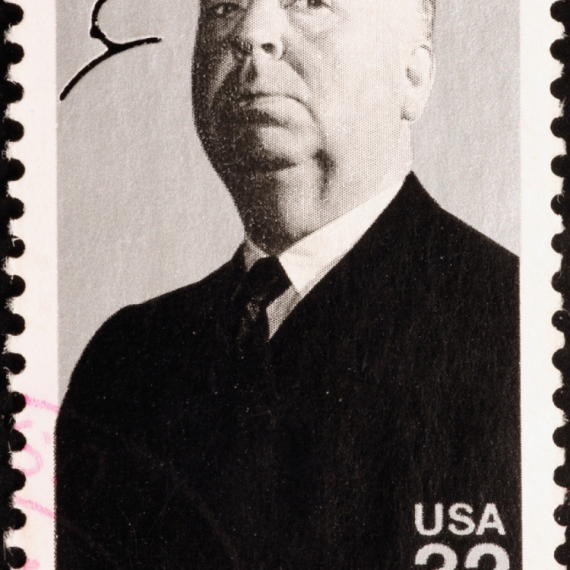UK govt. refuses to publish pre-Iraq war discussion
The British government refused on Tuesday to publish records of cabinet discussions on the legality of invading Iraq in 2003.
Wednesday, 25.02.2009.
10:45

The British government refused on Tuesday to publish records of cabinet discussions on the legality of invading Iraq in 2003. This despite a tribunal ruling in January that it should release them, Reuters reports. UK govt. refuses to publish pre-Iraq war discussion Justice Secretary Jack Straw used a ministerial veto to block the request made under the Freedom of Information Act, saying the release of the records would "in my judgment risk serious damage to Cabinet government." "The decision to take military action has been examined with a fine-tooth comb; we have been held to account for it in this House and elsewhere," Straw said in a statement to parliament. "But the duty to advance that interest further cannot supplant the public interest in maintaining the integrity of our system of government." Publication of the documents could have embarrassed Prime Minister Gordon Brown, whose predecessor Tony Blair was accused by critics of glossing over lawyers' initial reservations about launching the invasion that overthrew Saddam Hussein. Previously released documents have shown that Attorney General Peter Goldsmith, then the country's senior legal officer, had cast doubt on the legal grounds for war on March 7, days before Blair ordered British troops to invade Iraq. Ten days later, when Britain had failed to get a new United Nations resolution authorizing an invasion, Goldsmith gave the cabinet and parliament short written advice that war would be legal - and mentioned no doubts. Blair denied Goldsmith had bowed under political pressure but opposition parties accused the prime minister of deceit. Brown was finance minister and supported Blair over the war. The case is likely to raise questions about the government's commitment to open administration and the strength of a Freedom of Information Act that came into effect in 2005. The Information Commissioner ruled in February 2008 that the government should release the Iraq cabinet documents. The government appealed, but a tribunal which decides on requests for documents under freedom of information laws said it was in the public interest to release them. The minutes of cabinet meetings are normally kept secret for 30 years. Foreign Secretary David Miliband has also come under fire for blocking the publication of documents related to the treatment of British resident Binyam Mohamed, held in Guantanamo Bay for more than four years before his release this week. The decision to join the U.S.-led invasion of Iraq provoked mass protests in Britain in the weeks before the war and still angers many traditional supporters of the ruling Labour party - in power for 12 years but now lagging in polls. Britain has said it will withdraw almost all its remaining troops from Iraq by the end of July.
UK govt. refuses to publish pre-Iraq war discussion
Justice Secretary Jack Straw used a ministerial veto to block the request made under the Freedom of Information Act, saying the release of the records would "in my judgment risk serious damage to Cabinet government.""The decision to take military action has been examined with a fine-tooth comb; we have been held to account for it in this House and elsewhere," Straw said in a statement to parliament.
"But the duty to advance that interest further cannot supplant the public interest in maintaining the integrity of our system of government."
Publication of the documents could have embarrassed Prime Minister Gordon Brown, whose predecessor Tony Blair was accused by critics of glossing over lawyers' initial reservations about launching the invasion that overthrew Saddam Hussein.
Previously released documents have shown that Attorney General Peter Goldsmith, then the country's senior legal officer, had cast doubt on the legal grounds for war on March 7, days before Blair ordered British troops to invade Iraq.
Ten days later, when Britain had failed to get a new United Nations resolution authorizing an invasion, Goldsmith gave the cabinet and parliament short written advice that war would be legal - and mentioned no doubts.
Blair denied Goldsmith had bowed under political pressure but opposition parties accused the prime minister of deceit. Brown was finance minister and supported Blair over the war.
The case is likely to raise questions about the government's commitment to open administration and the strength of a Freedom of Information Act that came into effect in 2005.
The Information Commissioner ruled in February 2008 that the government should release the Iraq cabinet documents. The government appealed, but a tribunal which decides on requests for documents under freedom of information laws said it was in the public interest to release them.
The minutes of cabinet meetings are normally kept secret for 30 years.
Foreign Secretary David Miliband has also come under fire for blocking the publication of documents related to the treatment of British resident Binyam Mohamed, held in Guantanamo Bay for more than four years before his release this week.
The decision to join the U.S.-led invasion of Iraq provoked mass protests in Britain in the weeks before the war and still angers many traditional supporters of the ruling Labour party - in power for 12 years but now lagging in polls.
Britain has said it will withdraw almost all its remaining troops from Iraq by the end of July.
















Komentari 2
Pogledaj komentare